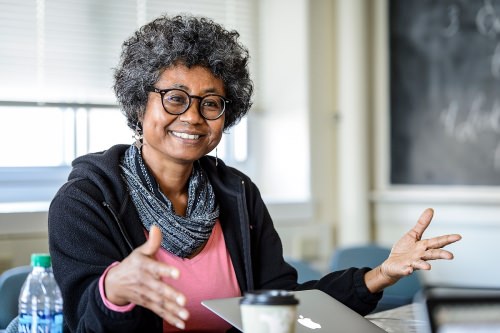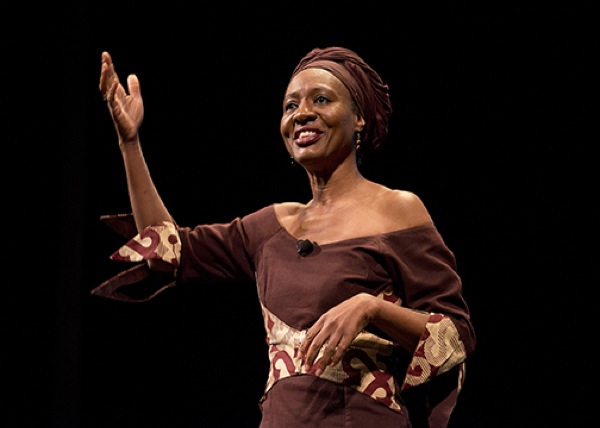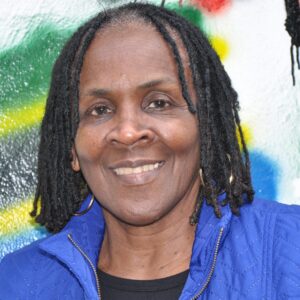About Mawina
MAWINA (SOWA) KOUYATE came out of the struggles for tenant rights, joined the All African Peoples Revolutionary Party (A-APRP) in Boston, Massachusetts in 1973, and became state Program Coordinator there. The A-ARP was the Party started by Kwame Ture, formerly Stokely Carmichael.
In September 1979, she became the Northeast Regional Administration Coordinator. In 1983, she was one of two women to be the first women elected to the AAPRP Central Committee.
Mawina led the struggle to build the A-ARP All-African Women Revolutionary Union. She was assigned in the 1980s to develop the Party in Connecticut, Rhode Island, and northern New York. Mawina is well remembered for using her life, her house, and her organization as a vehicle for serving the masses. Her revolutionary love was so broad and deep that her place of residence was known as a “Safe House” for anyone in need, especially African women. She lived by example, and the masses of women in the AAPRP voted her in as their first Women’s Union representative in 1980.
She moved to New York City in 1981 and worked relentlessly with the Chapter and AAPR’s numerous national and international alliances. She was a staff organizer for the Mobilization for Survival that organized the largest Anti-Nuke Demonstration in NYC and the USA in 1981. She led the Party delegation to the UN Conference on Women in Nairobi, Kenya in 1985.
In 1987, Mawina led the A-ARP delegation to Libya on the anniversary of the US bombing of Qaddafi’s house and the murder of his daughter. She spearheaded the 10th Anniversary Celebration of the founding of the All-African Women Revolutionary Union that met in England in 1991. She worked to extend the Union membership on the expanded Central Committee after 1995.
Tirelessly, she labored for the Kwame Ture Medical Fund. In 1998, she implemented the AARP’s Central Committee’s decision to support both Million Youth Marches. After the assassination of Amadou Diallo, she founded the Women for Justice, comprised of mothers and women tired of seeing the police massacre African men in spite of their suffering. After struggling for years with cervical cancer, she moved to Gambia where she died on September 3, 2002, and went on to join our fighting ancestors.
We Are An African People



